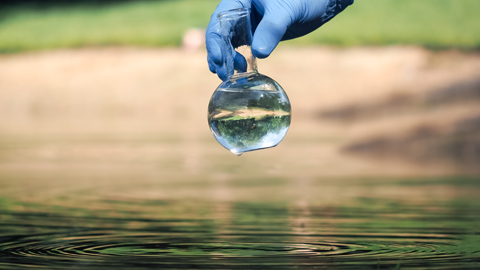The UAB leads a project to remove persistent pharmaceutical pollutants found in wastewater

The first Recopharma work session took place on 17 and 18 January at the Faculty of Science, with the participation of representatives of all eight member institutions. Coordinated by the Seperation Techniques Group of the Department of Chemistry and led by Professor Manuel Valiente, it represents the first collaboration between Cuba and the UAB under an H2020 programme.
15/01/2018
Recopharma aims to design and develop techniques with the minimum environmental impact with which to remove persistent contaminants such as pharmaceutical products found in wastewater, known as E3P (Environmental Pharmauceutical Persistent Pollutants). Funded with €895,500 by the Marie Sklodowska-Curie Research and Innovation Staff Exchange (RISE) of the Horizon 2020 Programme, the project will have a duration of four years.
Apart from the UAB and its spin-off AERIS Tecnologías Ambientales, participating in the project will be Lunds Universitet, Sweden; the Université de Pau et des Pays de L’adour, France; the Università degli Studi di Udine, Italy; the Europe For Business Ltd, UK; the La Habana University and the Centro de Investigación y Desarrollo de Medicamentos (CIDEM), both in Cuba. These two prestigious institutions, seen as leading centres among the scientific community of all Latin America, represent the first participation of Cuba with the UAB under the H2020 programme.
The consular representatives in Barcelona of all participating countries were invited to the first work sessios.
Towards a new and more efficient and economic removal process
Pharmaceutical products are known to be persistent to the environment, especially those known as cytostatic substances (CDs), which have been detected in different water masses (drinking water, subterranean, superficial and wastewater) in concentrations superior than μ/L level. To reduce and eliminate the CDs different electrochemical, photochemical and biological methods have been developed, but they are often expensive and sometimes not effective enough.
Recopharma was created to develop and validate a new process which allows removing the CDs and the reduction and transformation of the resulting products or metabolites, and which would function constantly. The new techique will include the potential offered by new compounds and techniques such as Molecularly Imprinted Polymers (MIPs), Reactive Thermoabsorption (RTS), functional nano-compound materials and advanced processes of oxidation.
The new technology will be developed with the objective of incorporating it, at the long term, into a circular economy process which will favour the reusage of treated wastewater and cut down on the energy spent during the process.
The project Recopharma (Removal and Recovery of Pharmaceutical Persistent Pollutants from Wastewater by Selective Reagentless Process) receives funding from the Marie Skłodowska-Curie Research and Innovation Staff Exchange (RISE) of the European Union's Horizon 2020 innovation and research programme, with contract number 778266.